No vote for Alpine solar parks: what does it mean for Switzerland?
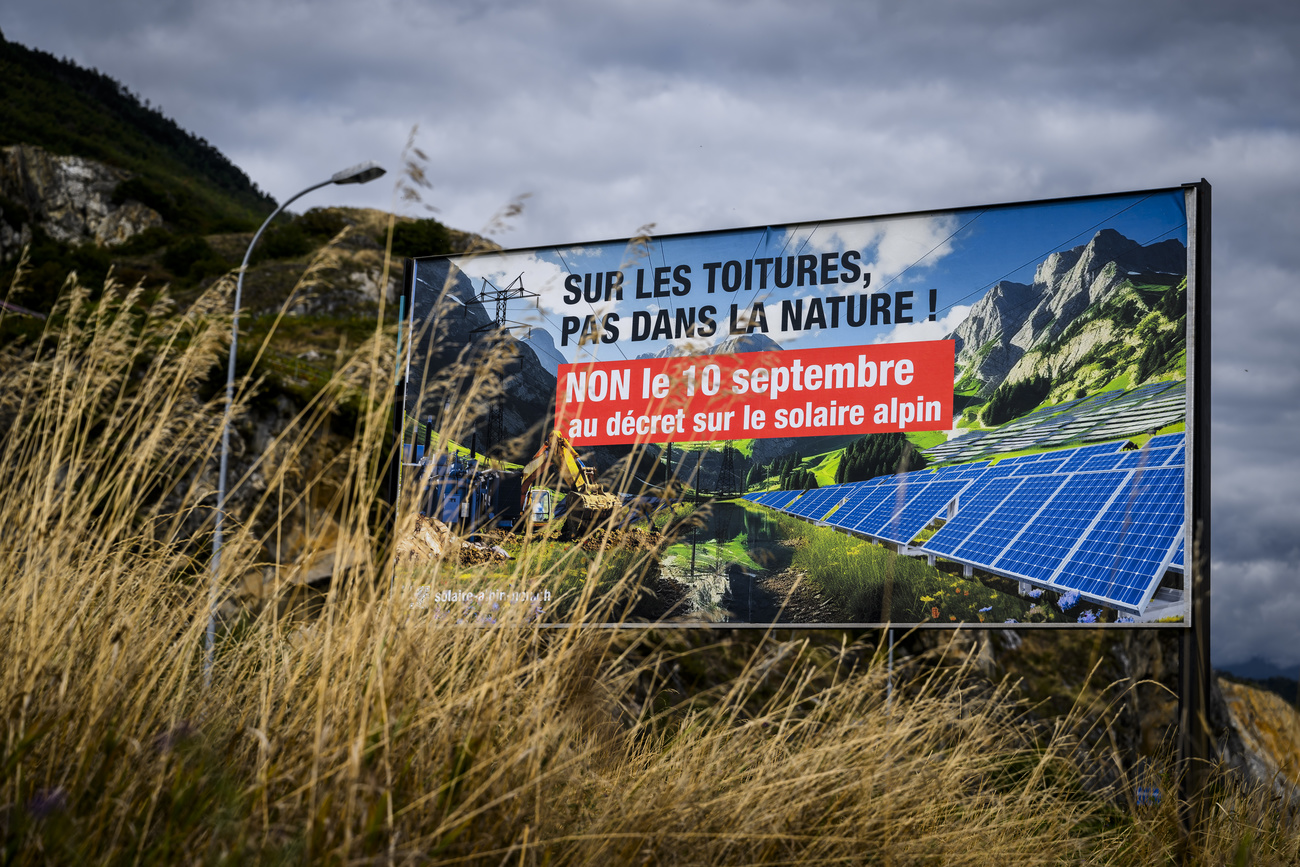
Voters in canton Valais have rejected the rapid expansion of solar parks on their sunny mountain peaks and pastures. This complicates the implementation of local projects but could have more far-reaching consequences for national energy policy, say Swiss newspapers.
On Sunday, 54% of voters rejected a decree approved by the Valais parliament designed to support federal “Solar Express” legislation to simplify and speed up the construction of large Alpine solar parks. Voter turnout was 35.72%.
Opponents – an alliance of environmentalists and supporters of the left-wing Green Party and the right-wing Swiss People’s Party – had turned the legal, procedural issue into a wider test of public opinion with a simple question: are you for or against Alpine solar parks?
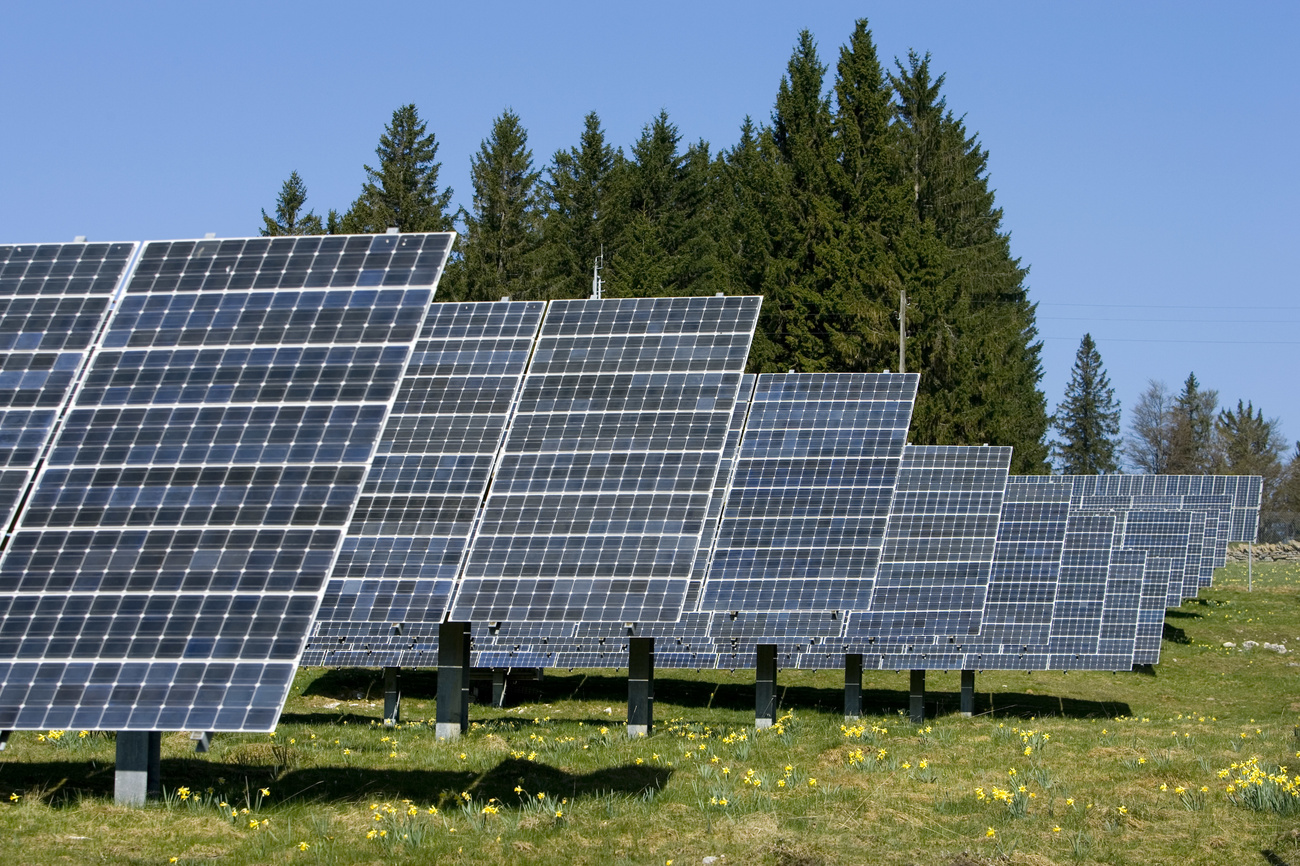
More
Canton rejects accelerated planning for solar power plants
The result sends several clear messages, say Swiss editorialists.
“The vote confirms that the mountain region – apart from the German-speaking Upper Valais region and a handful of other municipalities that all voted yes – does not want large Alpine solar farms,” said Le Nouvelliste, a Valais regional newspaper.
In the mountains environmental ideals and conservatism obviously came together under the banner “don’t touch the mountains until you’ve made the most of existing buildings”, it added.
Le Temps newspaper felt Valais citizens had voted “with their hearts and their eyes” and sent a clear message to the federal authorities in Bern: “there is no miracle solution for speeding up the energy transition”.
As part of the federal government’s push to rapidly develop renewable energy sources, Solar Express, approved by parliament last year, aims to accelerate the construction of large photovoltaic systems in the Alps during a transition phase until the end of 2025. Generous subsidies are up for grabs. Around 40-50 project proposals have emerged, which are at different stages of realisation and approval. Many are planned in the sunny Valais region in southwestern Switzerland.
Longer approval process
Despite Sunday’s result, Alpine solar farm projects will still be able to go ahead in Valais. But they probably face a longer approval process and the threat of more opposition. They may also miss out on federal funds.
Sunday’s no vote clearly shows that the “original euphoria is over and that the energy policy gold rush has subsided for the time being”, said the Neue Zürcher Zeitung (NZZ).
“French-speaking Valais, which is more populated and thought to be more progressive, is now slowing down the Solar Express,” it declared.
The Valais vote has no direct impact on other Swiss regions. Cantons regulate the implementation of the solar offensive decided by Bern in their own way, sometimes at the municipal level, at round tables or in accordance with local planning legislation.
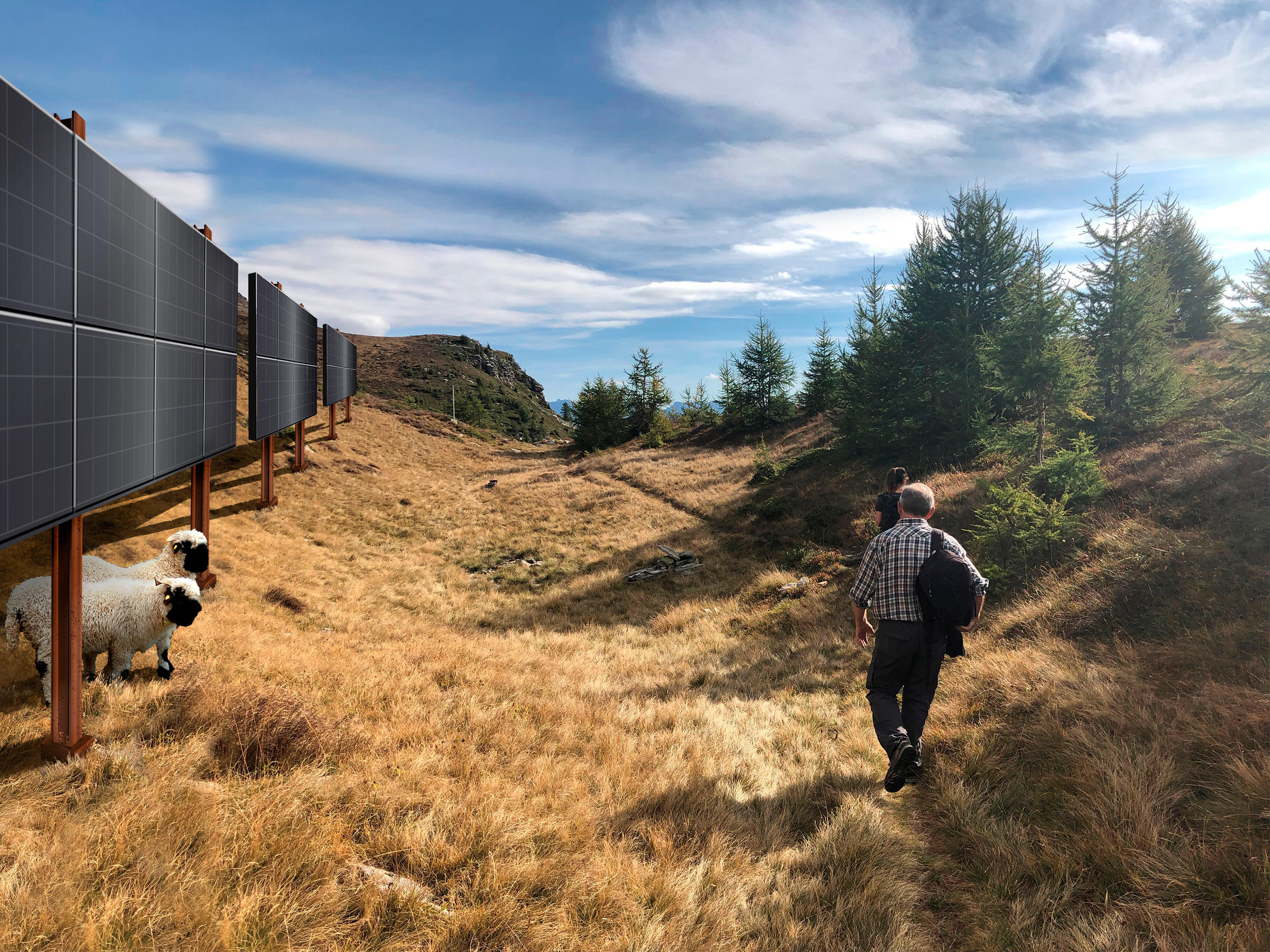
More
Mountaintop solar farms spark tensions in Switzerland
New nuclear power stations?
But after the Valais result questions will certainly be raised about the rationale of installing solar parks in other mountain regions, Switzerland’s solar strategy and its place in the overall energy transition.
“The no to the Solar Express is not a no to Alpine solar power production per se, but it is still a setback for the energy supply of the whole of Switzerland,” wrote the Tages-Anzeiger.
“In order to ensure security of supply, the country is dependent on the rapid expansion of solar energy, especially in the Alpine region. The federal parliament sees it the same way – and therefore rushed through a national emergency law in autumn 2022. It now turns out that the pace is too much for many people from Valais.”
One obvious question is whether Energy Minister Albert Rösti, who was instrumental in rushing Solar Express legislation through parliament, will change his approach, said the NZZ.
“His primary goal is likely to remain to get the so-called blanket decree for a secure electricity supply with renewable energies passed in the autumn session. Rösti is clearly trying to save the various compromises between electricity supply and environmental protection in the law – a difficult undertaking. Even the expansion of hydropower is threatened with massive resistance,” it said.
Another upshot of the no vote could be a push for new nuclear power stations, the NZZ suggested.
The Tages-Anzeiger agreed the Valais result looked like it might help supporters of new nuclear plants. “But even if Switzerland were to order new nuclear power plants today, they would go into operation only in 20 years,” it added.
Energy supply and solar power
The big problem in Switzerland, the Tages-Anzeiger went on, is that when you talk about national energy supply, many people still don’t realise what is at stake in the coming years.
“The demand for energy is constantly increasing, partly because of the electrification of cars and the installation of heat pumps,” said the paper. “According to estimates from the Swiss electricity industry, Switzerland will consume around 80 terawatt hours (TWh) of electricity in 30 years – today it is 60TWh. But with the shutdown of the nuclear power plants, 30TWh will be lost in the same period. So Switzerland needs 50TWh from new energy sources. This is a purely physical fact. The energy should be CO₂-neutral and come as little as possible from abroad.”
Producing more local solar energy is one of the main planks of the government’s current strategy. And under Solar Express plans, Alpine solar farms are a key element, feeding electricity into the grid from the end of 2025, with an overall production target of 2TWh a year, or enough for 500,000 households.
It is now unclear how easily this goal can be achieved. But for the Tages-Anzeiger, there is no alternative. “The Solar Express must continue rolling, albeit a little slower than planned,” it declared.
RTS video below on planned projects in Saas-Grund and Grimentz in canton Valais.

In compliance with the JTI standards
More: SWI swissinfo.ch certified by the Journalism Trust Initiative









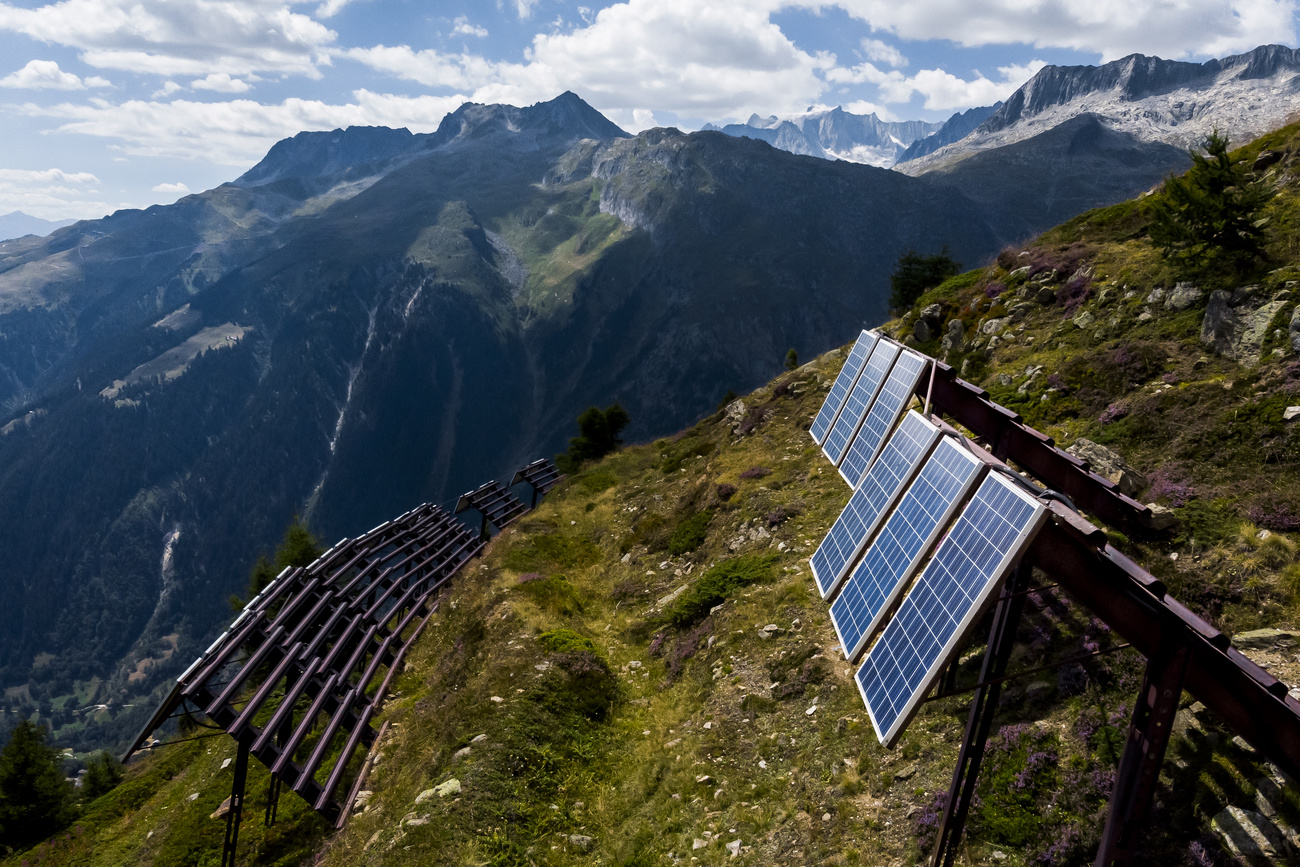
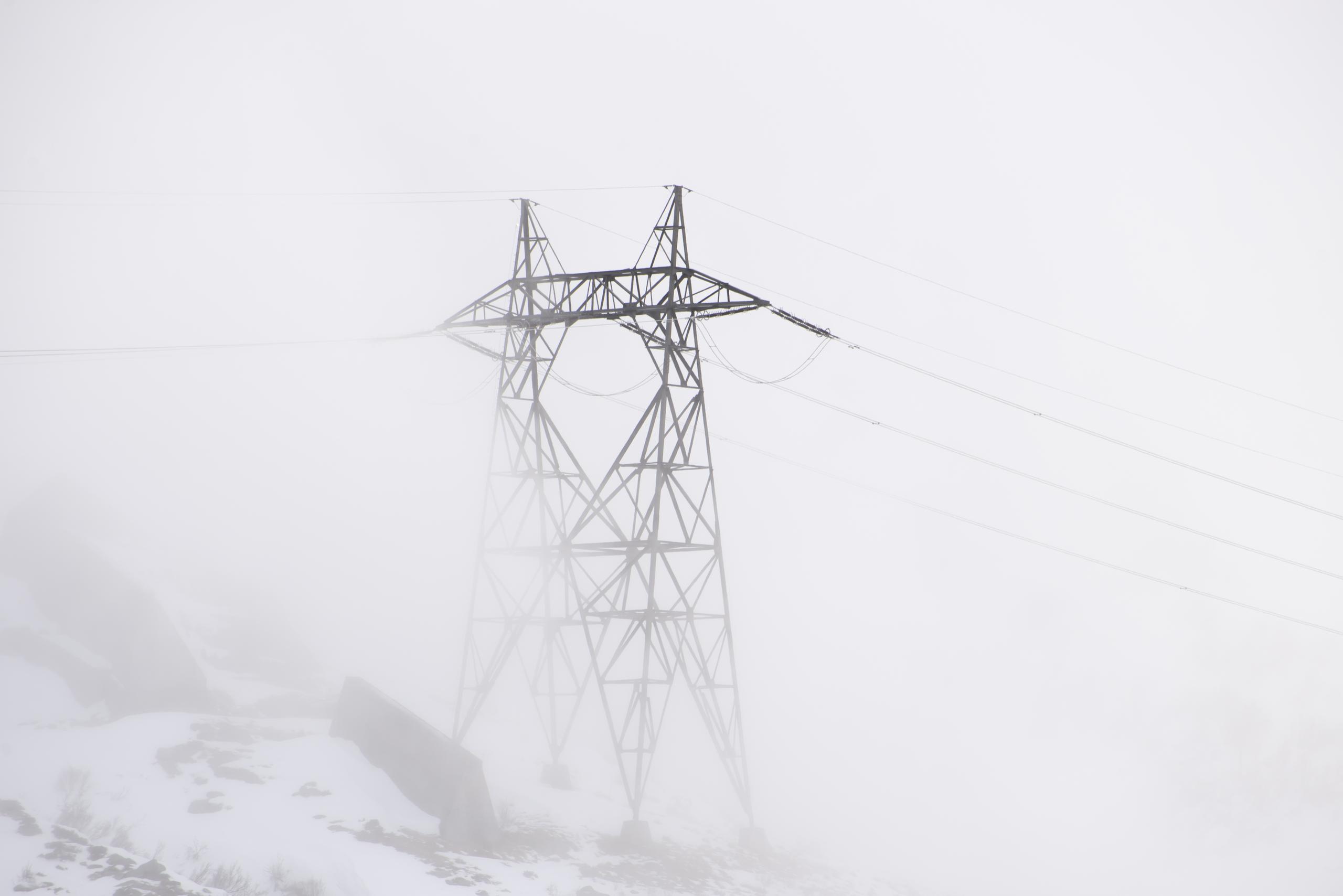
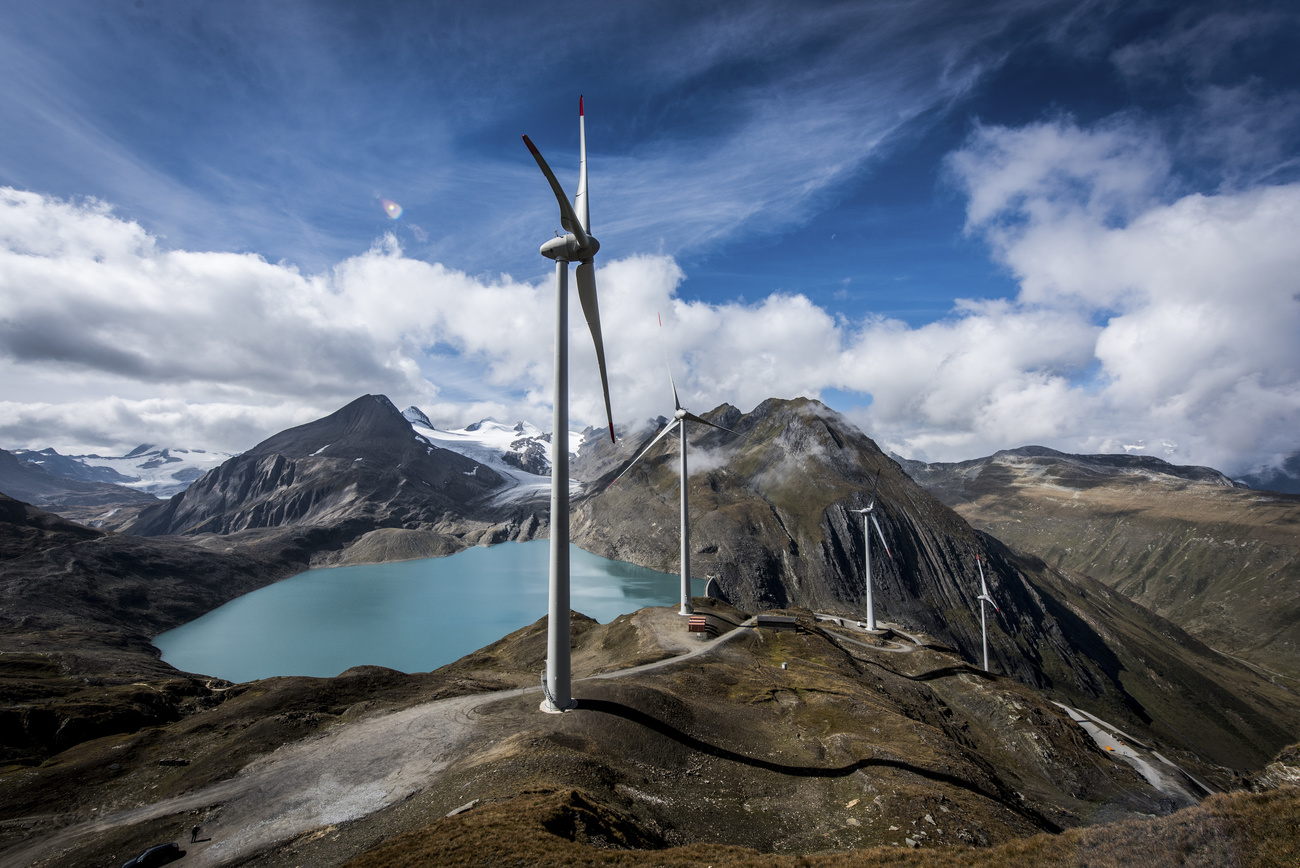
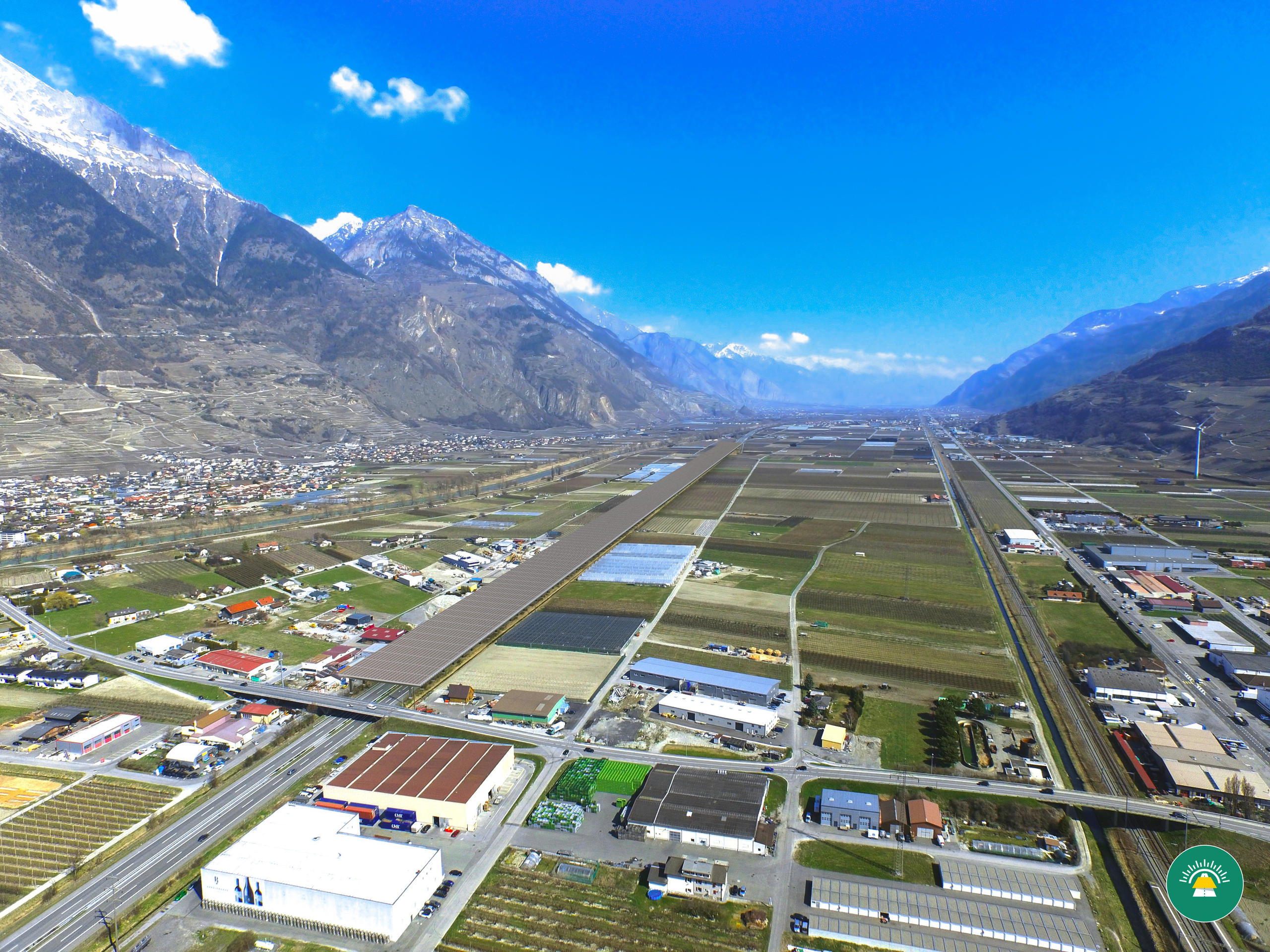
You can find an overview of ongoing debates with our journalists here . Please join us!
If you want to start a conversation about a topic raised in this article or want to report factual errors, email us at english@swissinfo.ch.